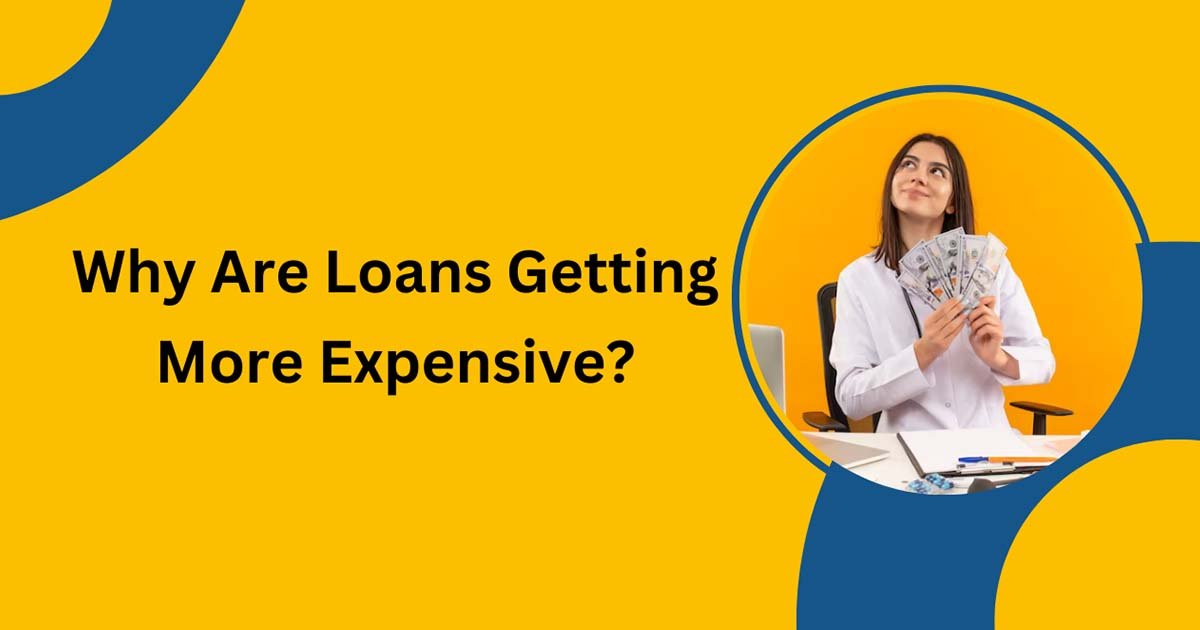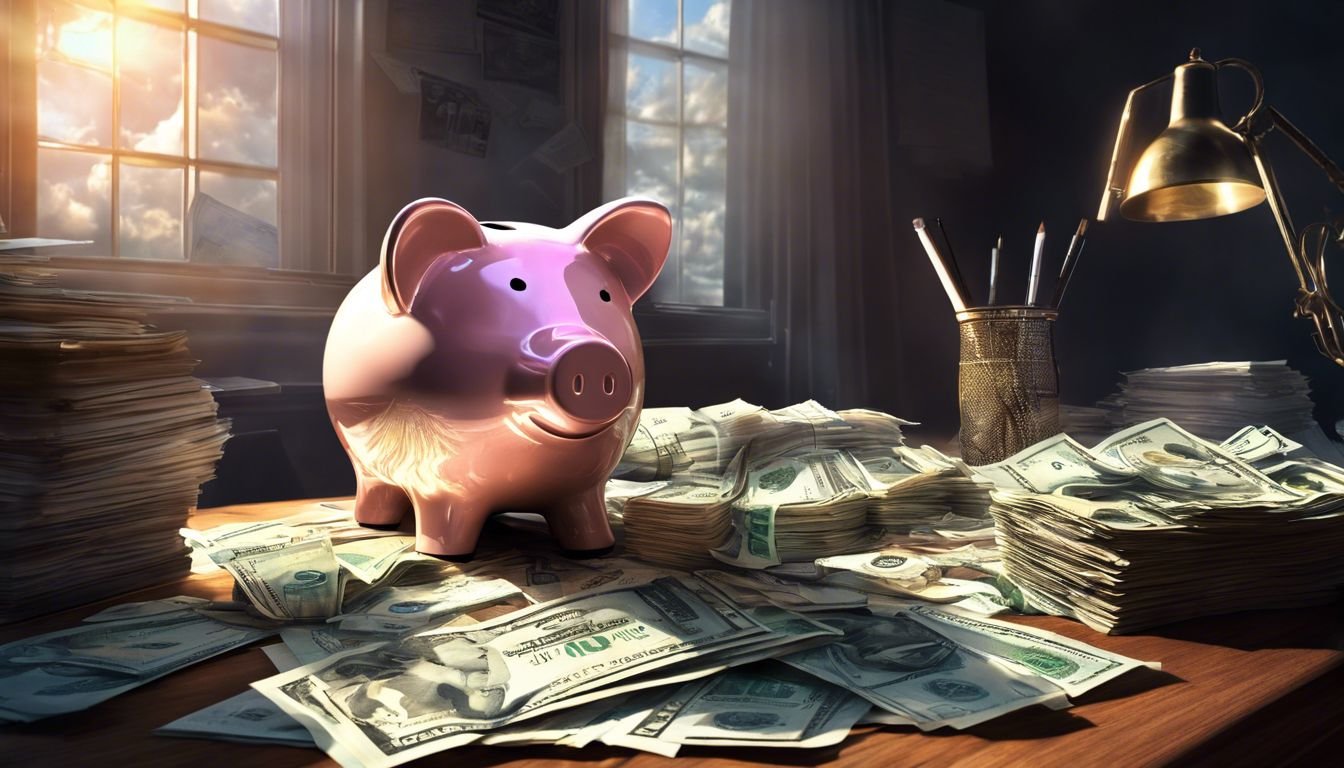Let’s talk about loans, my friends. Loans are basically like borrowed cash that people use for all sorts of important things – buying a house, snagging a new set of wheels, or tackling unexpected expenses. But guess what? There’s a twist in this story. Borrowing money is becoming more expensive, and I’m here to break it down for you and explain how this little financial shake-up affects folks like you.
The Loan Market
Think of the loan market as this colossal bazaar where money is changing hands left and right. This marketplace is where you can get money when you need it, but you have to pay it back later with some extra money added, which is called interest.
Just like when you trade toys or games with your friends, people in the loan market trade money, and it’s influenced by things like how much extra money you have to pay (interest) and how long you can keep the borrowed money before you give it back. It’s influenced by all sorts of factors, from the interest rates you’re slapped with to how long you can hang on to that borrowed dough.
The Forces Behind Rising Loan Costs
Inflation And Interest Rates

So, when you see prices climbing for your everyday essentials, that’s called inflation. And you know what happens when that occurs? Banks might just hit you with a higher interest rate on that money you borrowed. Translation: loans, including those for your dream home and personal needs, start to get pricier.
Lending Standards
Now, lenders, the folks who dish out loans, are playing it safe. They’ve become choosier about who gets the green light for borrowing, and that can result in higher interest rates for everyone else.
Economic Rollercoaster
Picture this – when the economy’s on the fritz, more folks are scrambling for loans to keep their heads above water. Not really. That’s like going up on a rollercoaster. But other times, the economy can get shaky, like when people lose their jobs and things become expensive. That’s like going down on a rollercoaster. So, it’s like a wild ride for our money and jobs, just like a rollercoaster at the theme park. This loan demand can lead to higher interest rates and riskier lending practices, which ultimately puts a dent in your wallet.
Credit Scores
Your credit score is like your financial report card. Credit Scores are like report cards for grown-ups about how good they are at handling their money. It’s a way to see if they pay their bills on time and if they owe a lot of money. If you’re rocking a good score, you’re in for some sweet loan deals. But if your score’s not looking so hot, brace yourself for higher interest payments.
Market Showdown

Banks and loan companies are in a constant battle to win your loan business. It’s like a game of cat and mouse. During the good times, it keeps loans cheaper. But when the going gets tough, competition can take a nosedive, sending those interest rates skyrocketing.
The Lender’s Bottom Line
Hey, lenders need to keep the lights on too. If their expenses are high, they might need to charge more interest on the money they lend to make a good profit. So, the lender’s bottom line is all about how much money they get to keep in the end. If it costs them more to get their hands on money, they’re going to pass that cost right along to you, my friend, in the form of higher interest rates.
The Impact On Different Types Of Loans
1. Mortgages
Trying to snag a loan for that dream house? The bank lends them the money to buy the house, and then they have to pay it back little by little over many years, just like you might pay back your parents over time. But there’s a catch – the bank adds a little extra money called “interest” each time the person pays back some of the borrowed money. So, a mortgage helps people own a house even if they don’t have all the money right away. Well, when mortgage rates start climbing, it can make it tough for everyday folks to make the leap into homeownership.
2. Auto Loans

Higher interest rates on auto loans? That means it’s going to be a little more expensive to get behind the wheel, and it’s not just the car buyers who feel the pinch – the whole auto industry does too. It’s like buying a car on a payment plan, where you get to use the car right away, but you promise to pay for it over several months or even years. So, auto loans help people get the car they want without having to pay for it all at once.
3. Personal Loans
People turn to personal loans for all sorts of reasons, but when the costs go up, it stings those who rely on them for financial support. They also have to pay a little extra money, called “interest,” for the privilege of borrowing that cash. So, personal loans are a way for adults to get some extra money when they need it, and then they pay it back later, with a little extra.
The Ripple Effect On Borrowers
Alright, here’s where the rubber meets the road. Expensive loans mean you’re shelling out more of your hard-earned cash to pay them back. And that can make it a real challenge to save up or enjoy other things you’ve been dreaming of.
Tips For Navigating Costly Loans
So, what’s a savvy borrower to do in these challenging times? Well, my friends, there are a few strategies you can put into play. First off, work on boosting that credit score of yours. The better your score, the better your loan terms. Next, shop around for loans with juicier interest rates – trust me, they’re out there. And don’t forget to see if there’s any government assistance available to lighten the load.
Also Read : How To Choose The Perfect Startup Business Loan
Conclusion
Loans are becoming a bit pricier these days, and it’s all thanks to factors like inflation, stricter lending rules, and the ups and downs of the economy. All these puzzle pieces fit together to determine just how much interest you’re going to be forking over, and it’s bound to have an impact on your financial game. So, stay sharp, keep those credit scores in check, and always be on the lookout for the best loan deals in town. Your wallet will thank you.
FAQs
1. How does inflation affect loan costs?
Inflation can lead to higher interest rates, making loans more expensive. Central banks may raise rates to combat inflation, increasing the cost of borrowing.
2. Are there any benefits to the rising interest rates?
Higher interest rates can benefit savers, as they may receive better returns on their savings and investments. However, for borrowers, it generally means more expensive loans.
3. Can government policies reduce loan costs?
Government policies can influence loan costs, with subsidies or incentives reducing costs. Conversely, regulatory changes can increase the cost of loans.
4. What is the impact of loan costs on the housing market?
Expensive loans can reduce the affordability of homes, potentially slowing down the housing market and affecting both buyers and sellers.
5. How can individuals prepare for expensive loans?
Individuals can prepare by improving their credit scores, shopping for competitive rates, and exploring government programs or subsidies that can reduce the cost of borrowing.
Source Image : Freepik.com





